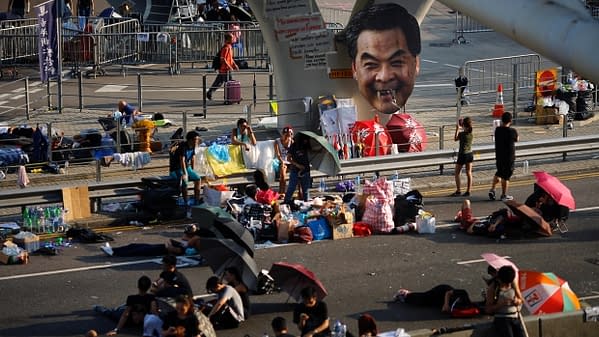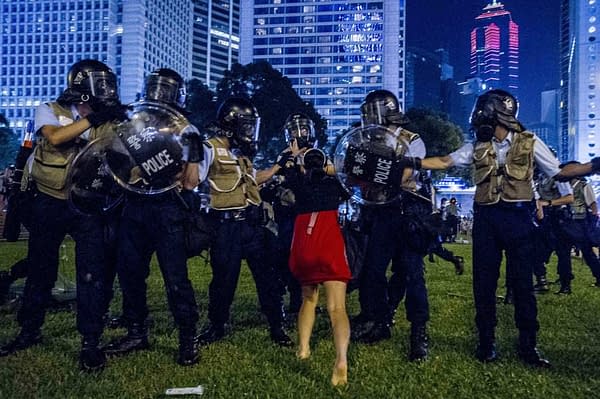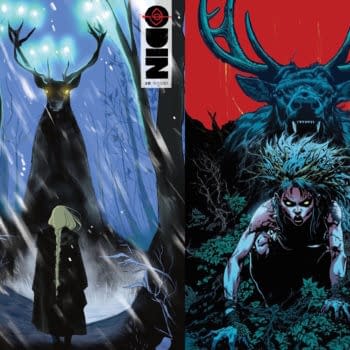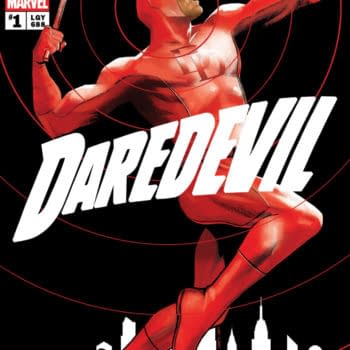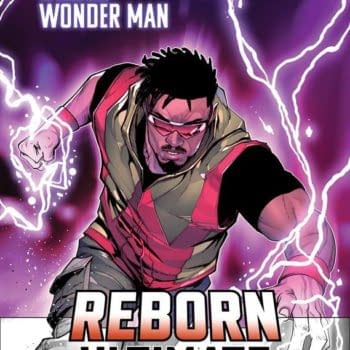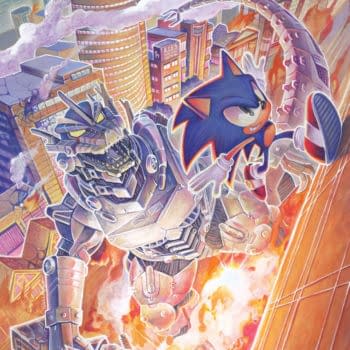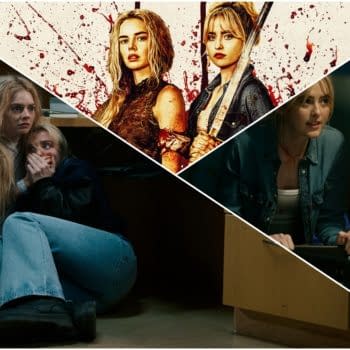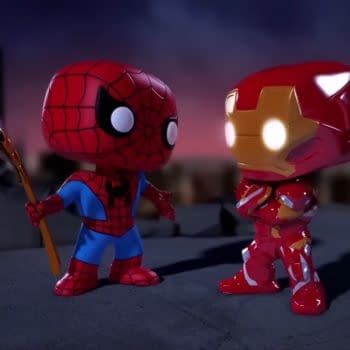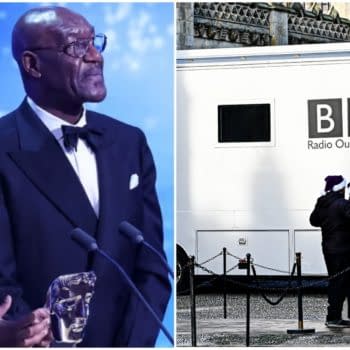Posted in: Look! It Moves! by Adi Tantimedh, Movies | Tagged: dvd, entertainment, film, hong kong, protests
Hong Kong Protests And The Midnight After – Look! It Moves! by Adi Tantimedh
Adi Tantimedh writes,
I've been following the pro-democracy protests in Hong Kong for more than a week. It's a culmination of the tension between Hong Kong and the Mainland Chinese government since the Handover in 1997. As violence against the protesters (predictably) erupted this past weekend, things are looking increasingly apocalyptic and everyone's holding their breath about the outcome.
There has been one movie that was released early this year that actually captured the mood of Hong Kong and even anticipated the current protests. That movie is Fruit Chan;s The Midnight After.
Adapted from a popular 2012 cult novel originally serialised on the internet, Lost on a Red Minibus to Tai Po, by the pseudonymous Mister Pizza, the story is a Science Fiction/Horror plot you would find in an episode of The Twilight Zone. 22 people find they're literally the only people in Hong Kong left, the rest of the city has been left empty, cellphone signals are down, and they get sick and start dropping like flies. Civility breaks down and some of them go crazy and violent as the night becomes as much about staying alive as solving the mystery. SPOILER: the mystery is never answered. It's not about solving the mystery. It's about how these Hong Kong people deal with an apocalyptic situation. Of course, they cope very, very badly. This is a dark comedy after all, social satire and commentary.
Back in the 1960s, 1970s and 1980s, Hong Kong Cinema was the leading light in martial arts movies and actions movie. By the 1980s, with directors like John Woo, Jackie Chan, Tsui Hark, Johnny To and Ringo Lam, the territory was making the craziest, most innovative action movies in the world. By the 1990s, arthouse auteurs like Wong Kar Wai and Fruit Chan emerged to show Hong Kong was not all action and explosions but also a deeply quirky, individualistic culture with unique artistic bent. After the 1997 Handover and the gradual collapse of the movie market from piracy and the over-saturation of the same types of movies again and again, the attempts by several directors to work for Hollywood and the overhyped attempts by Hollywood to assimilate Hong Kong's techniques and filmmakers, the shine had fallen off Hong Kong Cinema. Less movies are being made in Hong Kong now, and many of them are trying to cater to the Mainland Chinese market, which also means having to obey Mainland censorship demands since they're not expected to be released there.
In the last few years, there has been a small number of Hong Kong movies made specifically for the Hong Kong market, steeped in Hong Kong culture and dialect, a defiant assertion of cultural identity rather than homogenisation story and character to cater to Mainlanders. Movies like Pang Ho-Cheung's Vulgaria and now Fruit Chan's The Midnight After have been hits that catered to a local Hong Kong audience, featuring jokes and topics that would probably mean a limited audience in the Mainland, if they get shown officially in China at all. These local movies have been box office hits in Hong Kong, and they carry the same subtext: that of Hong Kong trying to hold on to its unique cultural identity over the encroaching Mainland.
The subtext of The Mignight After is no different. It's all about the tension and anxiety that Hong Kong people have been feeling since 1997 about their relationship with Mainland China. You could read the emptying of Hong Kong as a metaphor for the resentment Hong Kong people feel about Mainland nouveau riche millionaires coming over and buying up real estate and wiping out local communities, shops and colour in an act of cultural imperialism. Of course, the main characters, all Hong Kong people, don't come off very well either, a selfish, angry, scared bunch of goofballs becoming increasingly paranoid and violent who start to turn on each other and self-destruct, the latter feels amazingly prescient given that pro-China groups and Triad gangs started to violently attack the demonstrators this past weekend in real life Hong Kong to nobody's surprise.
Who needs zombies, monsters or armies to wipe people out when all you need is a little panic and their own base instincts to do it for you? Did I forget to mention this is a comedy?
Many people in Hong Kong have remarked that the photos taken from the protest look eerily similar to stills from the movie.
These are stills from the real protests in Hong Kong, not the movie:
To me, The Midnight After is the most interesting Hong Kong movie of this year. It's another example of pop culture's ability to capture the zeitgeist and distill the popular mood into a fiction that also serves as a social document of the times. It wouldn't surprise me if people in Mainland China catch the movie by pirating and downloading it. The movie has been enough of a hit for the makers to consider a sequel, especially since the movie ends on an open note and only adapted the first two-thirds of the novel (I haven't read it). I've heard they would probably have to make major changes to the plot to sustain an entire feature film. A sequel is really just to make more money. It might be better to have just this one crazy, flawed, funny movie as a record of 21st Century Hong Kong before everything changes.
(Thanks to Tony Rayns for additional background info)
The Midnight After is now available on Hong Kong Blu-Ray and DVD.
Jacked in, jacked out, jacked off at lookitmoves@gmail.com
Follow the official LOOK! IT MOVES! twitter feed at http://twitter.com/lookitmoves for thoughts and snark on media and pop culture, stuff for future columns and stuff I may never spend a whole column writing about.
Look! It Moves! © Adisakdi Tantimedh







